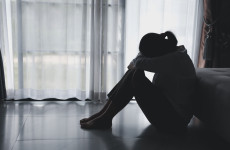Health
Suicide Rates Surge Among Young People in Europe, Study Reveals

A new study by Eurofound highlights that suicide has become the leading cause of death among young people in Europe. Following a decline prior to the COVID-19 pandemic, suicide rates have risen, underscoring a pressing public health issue. In 2021, the research found that suicide accounted for 18.9% of deaths among individuals aged 15 to 29, surpassing traffic collisions, which represented 16.5% of deaths in the same age group.
The report, released by the Dublin-based EU think tank, emphasizes that poor mental health contributed to a staggering 11.1 million years of life lost or lived with disability in 2021 across Europe. Notably, men are more than three times more likely to die by suicide than women, despite women reporting poorer mental health and seeking help more frequently. Recent statistics indicate a troubling rise in suicide rates among women under 20 and men over 85, categorizing these groups as particularly vulnerable.
Challenges in Ireland’s Mental Health Landscape
In Ireland, the report reveals some improvements in mental health services. Inpatient admissions for depressive and anxiety disorders have returned to pre-pandemic levels, and the mental health workforce has seen a 20% increase over the past five years. Despite these advancements, significant mental health challenges persist, primarily driven by economic and housing pressures. Approximately 32% of the population reported that economic factors adversely impacted their mental health, while 26% cited the housing crisis as a contributing issue.
Financial worries affect 57% of adults and are closely linked to higher rates of depression, particularly among those who are unemployed. Social media’s role in mental health was also highlighted, with 44% of Irish adults indicating that it exacerbates their stress and anxiety. A quarter of young girls reported negative impacts on their mental well-being attributed to social media usage.
The report underscores that access to mental health services remains a critical barrier in Ireland. In 2023, nearly 40% of individuals delayed seeking help due to stigma or fear of judgment, while one-third were uncertain about where to turn for assistance. Long waiting times and shortages, especially in child and adolescent services, further complicate the landscape. In rural areas, 17% of individuals reported a lack of local mental health services, limiting their access to necessary care.
Wider European Context and Recommendations
The Eurofound report identifies several overarching issues affecting mental health across Europe, including the transition to digital working environments and the impacts of climate change. Factors such as social insecurity, inequality, and economic concerns, particularly during the current cost-of-living crisis, have been cited as contributing to declining mental health. Vulnerable groups, including those in lower socioeconomic brackets, healthcare workers, and marginalized communities, face heightened risks.
Despite many EU countries offering free or low-cost mental healthcare, nearly half of those experiencing mental health problems rate the quality of services as below five out of ten. Major barriers to accessing mental health support include stigma, discrimination, and capacity limitations, as well as gender-specific challenges that disproportionately affect men.
The report advocates for improved living and working conditions, along with enhanced social inclusion, as means to bolster mental health across populations. As Europe grapples with increasing suicide rates among its youth, the findings of this research call for urgent attention to mental health services and broader societal issues impacting well-being.
Individuals affected by the issues discussed in this article can reach out for support through various helplines, including:
– DRCC: 1800 77 8888 (free, 24-hour helpline)
– Samaritans: 116 123 or email [email protected] (suicide, crisis support)
– Pieta: 1800 247 247 or text HELP to 51444 (suicide, self-harm)
– Teenline: 1800 833 634 (for ages 13 to 19)
– Childline: 1800 66 66 66 (for under 18s)
The urgent need for improved mental health services and support systems is evident as communities across Europe seek to address this critical issue.
-

 Top Stories2 months ago
Top Stories2 months agoTributes Surge for 9-Year-Old Leon Briody After Cancer Battle
-

 Entertainment3 months ago
Entertainment3 months agoAimee Osbourne Joins Family for Emotional Tribute to Ozzy
-

 Politics3 months ago
Politics3 months agoDanny Healy-Rae Considers Complaint After Altercation with Garda
-

 Top Stories3 months ago
Top Stories3 months agoIreland Enjoys Summer Heat as Hurricane Erin Approaches Atlantic
-

 World4 months ago
World4 months agoHawaii Commemorates 80 Years Since Hiroshima Bombing with Ceremony
-

 Top Stories2 months ago
Top Stories2 months agoNewcastle West Woman Patricia Foley Found Safe After Urgent Search
-

 Top Stories4 months ago
Top Stories4 months agoFianna Fáil TDs Urgently Consider Maire Geoghegan-Quinn for Presidency
-

 World4 months ago
World4 months agoGaza Aid Distribution Tragedy: 20 Killed Amid Ongoing Violence
-

 World4 months ago
World4 months agoCouple Convicted of Murdering Two-Year-Old Grandson in Wales
-

 World4 months ago
World4 months agoAristocrat Constance Marten and Partner Convicted of Infant Murder
-

 Top Stories3 months ago
Top Stories3 months agoClimbing Errigal: A Must-Do Summer Adventure in Donegal
-

 Top Stories3 months ago
Top Stories3 months agoHike Donegal’s Errigal Mountain NOW for Unforgettable Summer Views









